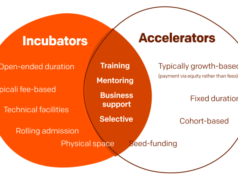In the world of startups, innovation is key. New ideas, breakthrough technologies, and cutting-edge products often emerge from places where curiosity and creativity are given the space to thrive. University labs have long been a major catalyst for such innovation, serving as breeding grounds for the next wave of disruptive technologies and scientific advancements.
As universities continue to produce groundbreaking research, they are becoming increasingly involved in the startup ecosystem. With the right mix of academic rigor, funding, and mentorship, university labs are enabling students, faculty, and researchers to transform their discoveries into real-world solutions. But what is the exact role of these university labs in fostering startup innovation, and how can they help bridge the gap between academic research and commercial success?
In this blog post, we will explore the contributions of university labs in the startup ecosystem, the challenges involved, and the unique opportunities they present for aspiring entrepreneurs.
University Labs: A Hotbed of Innovation

University labs are at the heart of scientific discovery and technological development. Academic institutions are where researchers push the boundaries of knowledge, often working on the most advanced technologies in fields like biotechnology, artificial intelligence, clean energy, robotics, and more. These labs are often home to some of the most creative minds in academia—students, postdocs, and professors alike—who are dedicated to solving the world’s most pressing problems.
While academic research often begins with curiosity and a desire to expand knowledge, it also creates the foundation for new ideas and products. Many of the most successful startup innovations in the world today were first conceived in university labs. Companies like Google, Tesla, Dropbox, and Gilead Sciences all have roots in university research and were born from ideas developed in academic settings. In fact, university labs often produce technology with the potential to reshape industries, and with the right resources and mentorship, those ideas can turn into successful, scalable startups.
1. The Research-Commercialization Bridge
University labs are well-positioned to be the first stop on the journey from research to commercialization. The process of turning academic research into a product or service that benefits the market is called technology transfer. While academic institutions have long been involved in publishing research, many have also established offices dedicated to helping researchers commercialize their work and bring it to market.
These technology transfer offices (TTOs) work to protect intellectual property (IP), secure patents, and guide researchers through the process of turning their ideas into startups. They also help match researchers with entrepreneurs, investors, and mentors who can provide the business and strategic support necessary to bring their innovations to life.
By bridging the gap between academic research and the commercial world, university labs are integral to the process of turning groundbreaking research into startup success stories.
2. Access to Cutting-Edge Technology and Resources
One of the biggest advantages of university labs is the access they provide to state-of-the-art equipment, specialized facilities, and resources that may be too expensive for early-stage startups to afford on their own. From advanced software and hardware to research labs and prototypes, universities often have the tools that entrepreneurs need to develop their technologies.
For example, universities with biotechnology departments may have access to gene sequencing tools, lab spaces for testing new compounds, or even partnerships with pharmaceutical companies for clinical trials. In fields like renewable energy, universities may have access to wind tunnels, solar test sites, or other infrastructure needed to test and refine new technologies.
This access to resources can give nascent startups a competitive edge, enabling them to build prototypes, conduct experiments, and refine their products at a fraction of the cost it would take to build their own facilities. In some cases, university labs even offer incubator spaces where entrepreneurs can work alongside researchers to develop their ideas.
3. Collaboration with Experts and Mentors

University labs are also hubs for talent, where students, postdocs, and faculty collaborate on cutting-edge research. For startups, this means that university labs provide a unique opportunity to collaborate with some of the brightest minds in the world.
Startups can tap into the expertise of faculty members who have years of experience in a specific field and access a diverse pool of young talent who are eager to work on real-world applications of their research. Faculty members, many of whom are experts in their field, can serve as advisors or co-founders, helping startups navigate the technical and scientific challenges of their ventures. Additionally, many universities have networks of alumni who have gone on to become successful entrepreneurs or investors, creating a vast web of potential mentors and collaborators.
Furthermore, many university labs have established relationships with industry leaders, allowing startups to build connections with potential partners, clients, and investors. These connections are invaluable, especially in industries where credibility, research validation, and expertise are critical.
4. Fostering a Culture of Innovation
University labs are also crucial in fostering a culture of innovation. The environment in academic institutions often encourages curiosity and experimentation, where failure is seen as a natural part of the learning process rather than a setback. This mindset is critical in the world of startups, where taking risks, learning from mistakes, and pivoting are essential to success.
Many universities now offer entrepreneurship programs, competitions, and hackathons that allow students and faculty to explore their entrepreneurial ideas and turn them into viable businesses. Universities have also established research-driven incubators and accelerators, where entrepreneurs can receive mentorship, funding, and support to help commercialize their ideas. These programs often provide a collaborative environment where budding entrepreneurs can learn from each other and work together to tackle shared challenges.
5. Access to Funding
Many university labs have established partnerships with venture capital firms, government programs, and corporate sponsors who are eager to fund early-stage, high-impact innovations. While funding for startups can be one of the most difficult aspects of launching a new venture, university labs offer an avenue for securing funding through grants, government-backed innovation programs, or venture funds that are specifically targeted at university spin-offs.
University-backed incubators and accelerators often provide startups with seed funding or help connect them with investors who are interested in their specific field of research. With this added financial support, startups can move forward with confidence, knowing they have access to the capital they need to scale and succeed.
Challenges Faced by University-Lab-Backed Startups

While university labs provide incredible opportunities for startup innovation, there are also challenges that entrepreneurs may face when developing startups in this environment. The process of technology transfer can be slow and bureaucratic, and navigating the legal complexities of intellectual property and commercialization can be daunting. Additionally, the culture of academia—focused on research and publication—does not always align with the fast-paced, risk-taking nature of the startup world.
Furthermore, university-based startups may struggle with accessing early-stage funding or understanding the business side of building a company. However, these challenges can be mitigated with the right support system, including university-backed accelerators, strong mentorship, and access to external investors.
Conclusion: University Labs as Catalysts for Innovation
University labs are not only places of discovery but also essential hubs for the startup ecosystem. They are uniquely positioned to foster innovation, provide access to resources, and help transform groundbreaking research into real-world solutions. By connecting researchers with entrepreneurs, investors, and mentors, university labs are helping bridge the gap between academia and the startup world.
For aspiring entrepreneurs in the fields of science and technology, university labs offer a wealth of opportunities. With the right collaboration and support, these labs can be the perfect environment for turning revolutionary ideas into successful startups that change industries and improve lives.




